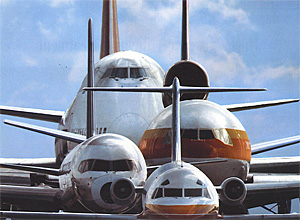 Accident reports slammed for ignoring engineers. Publisert: 04.11.08
An engineer on the technical committee of the IFA, Hosey notes the prolific information provided in accident reports on the pilots, including their licences, ages, medical records, flying hours - both total and on type, recent flying and training records, rest periods before flying, and many other facts. He contrasts that with the total lack of equivalent detail about the engineers involved or the circumstances associated with their work and the specific job on which the mistake was made. Speaking at the 28-30 October International Aviation Safety Seminar in Honolulu, shared by the IFA with the Flight Safety Foundation and the International Air Transport Association, Hosey said that all the data pertaining to pilots is faithfully recorded even when they played no part in the accident cause or outcome, whereas detail about the engineer's training, health, experience, background, working hours and other salient detail is almost always omitted in reports, even when maintenance error is involved. Hosey quoted only one recent report he was aware of in which all the appropriate detail about the engineer and his task was provided. He said it is remarkable that this difference in attention to the detail provided about two different professional groups in relation to accidents should exist, and it may be one of the reasons why managing the risk of error during maintenance receives less detailed attention than managing the risk of pilot error. Recording engineer working hours and patterns, including shift times and rest periods is at least as important as for pilots, Hosey argued, because the pilot's task can, at high-risk periods, generate adrenaline that can help overcome the affects of fatigue. An engineer's task does not benefit from an adrenaline burst toward the end of a long night shift, Hosey said.
|